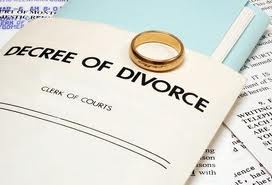 Florida lawmakers like others across the nation are taking the issue of permanent alimony to the legislature. Florida lawmakers are currently considering Bill 549, which would end permanent alimony in the state.
Florida lawmakers like others across the nation are taking the issue of permanent alimony to the legislature. Florida lawmakers are currently considering Bill 549, which would end permanent alimony in the state.
Currently, Florida Statute 61.08 reads, “Permanent alimony may be awarded to provide for the needs and necessities of life as they were established during the marriage of the parties for a party who lacks the financial ability to meet his or her needs and necessities of life following a dissolution of marriage.”
Permanent means exactly that, PERMANENT. The obligor ex-spouse pays the ordered alimony until such time the obligee ex-spouse remarries, dies or the judgment is otherwise modified.
 Jacksonville Divorce Attorney Blog
Jacksonville Divorce Attorney Blog









